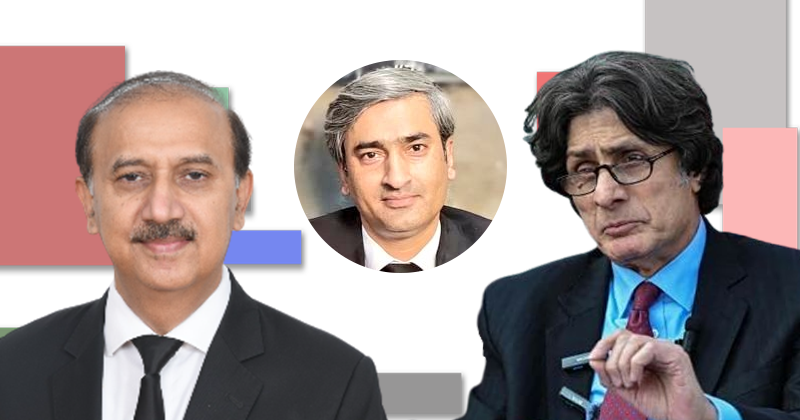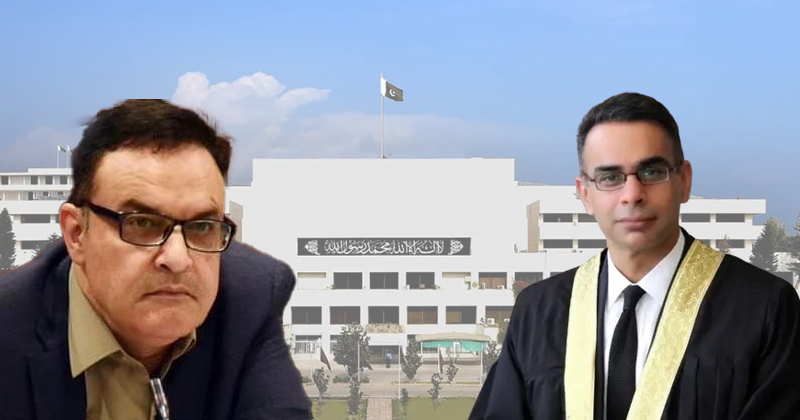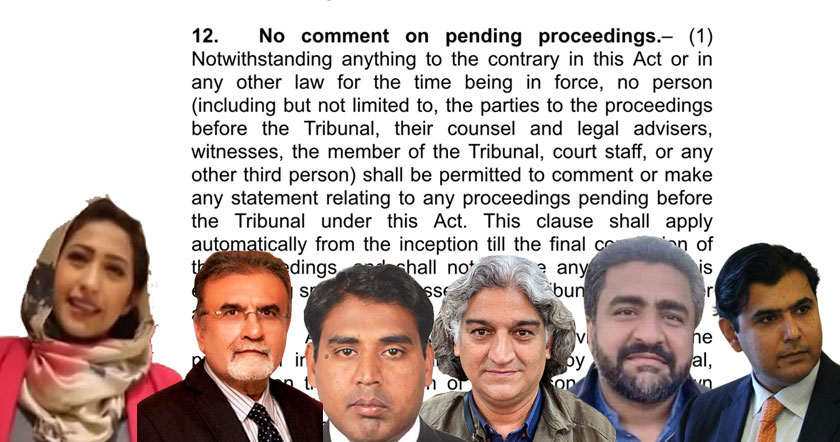Of reason and knowledge By Prof Mohammed Rafi |
ISLAMS insistence on reason as the best guide for belief and action, combined with its pragmatic approach, makes it very practical, logical, rational and close to life as a belief system.
Islam is concerned with the broad aim of life for those who have the courage to think, judge and act for themselves. It encompasses rationality and experience and rejects blind faith, as it addresses Those, who, when the revelations of their Rab (Nourisher) are presented to them, do not fall thereupon deaf and blind (25:73).
Islam views the world as an expression of Gods creative force. It gives broad principles as guidance to man in all walks of life which enable him to attain the goal of self-realisation and social welfare. These principles are not to be followed blindly, but applied with intelligence and forethought.
The Quran says, Those who do not use their faculties of thinking, reasoning and deliberating are not human beings, they are living their lives on the animal level, even worse than that; these are the cursed people (7:179). The Quran repeatedly exhorts man to think. Those who use their reason are held in admiration. The blind and deaf ignorant and the seeing (knowledgeable) are not equal. Will you not then reflect on this? (6:50, 11:24). Are those who know equal with those who know not? But only men of understanding will pay heed (39:9).
However, despite these clear injunctions, for the last 500 years or so, religious thought in Islam has been stationary. In the early period of Muslim history, Mutazilites, the rationalists, upheld mans freedom of thought and action and hence his responsibility for whatever he does. They rejected the fatalism of the Asharites. Due to the peculiar circumstances of that time, they lost their case to the orthodox Asharites in the fourth and fifth centuries (Hijra). However, the rationalist trend continued through philosophers, thinkers and reformers across Muslim lands.
The Quran does not accept as momineen (believers) who readily believe without questioning or thinking. True believers are those who do not accept without scrutiny and deliberation (25:73). Allah brings forward the clues and hints in a fashion, thereby enabling you to reflect on this life and the hereafter (2:219). The true practice of Islam in that spirit of thinking and reasoning has been long forgotten, rather lulled to sleep by clerics and religious obscurantists. They consider intellectual development and achievements of a particular period in history as a benchmark and have ruled out any further thinking, re-evaluation and progress of the thought process.
Nations using their intelligence and knowledge keep gaining strength while Muslim states have become weak to the point where they cannot even defend themselves. Islam stresses the importance of this world as well as the hereafter: The heavenly bodies and earth have been brought under your control (human beings) by Allah. There are signs in them for those who think and reflect (45:13). The entire universe works in accordance with the divine laws of nature. These can be discovered only through intelligence, knowledge and hard work for the benefit of mankind.
The great philosopher and scholar of medicine and social sciences Al Kindi believed that the highest existence was that of reason and intellect which proceeded from God by way of emanation, and that our soul was an uncompounded, imperishable essence which was in the world of reason before its descent to the sensuous world. Thus, it can have both sensible and rational knowledge. Al Farabi also stressed the acquisition of knowledge of all things in the universe; its main aim being to realise God. Ibn-i-Sina contended that intellect enabled man to know God. Thus it is incumbent upon man to polish his intellect, acquire knowledge and develop his reasoning abilities so that he may ennoble his soul and make it perfect.
The rejection of religious interference in state affairs in the West has had its negative effect over the centuries. Complete secularisation of thought and action has led them to reject the hereafter and hence they feel that they are not answerable to any supreme authority for their worldly actions. The law of retribution and requital has no place in their thought process.
Islam, on the other hand, is a deen of balance in all walks of life. It stresses that all emotions should be controlled by reason which should be guided by divine revelation through a set of permanent values. More than 1,000 verses of the Quran relate to nature and its working and in these verses human beings are asked to pause, see, ponder, reflect and act. It is the duty of every Muslim to use his mental faculties and acquire knowledge.
Many among todays ulema of Islam are not those who have religious knowledge and lead prayers in mosques. In the light of the following verse, the word ulema can only be translated as scientists: The Book of nature is for everyone, but only those who submit to the awe-inspiring grandeur of its laws, who think and reflect upon these in the light of knowledge and discernment, are the people entitled to be called ulema (37:27,28). Inactivity in exploring and studying the world around us and not taking advantage of the bounties of nature has led present-day Muslims to a life which is miserable, poor and meaningless. This will ultimately make them losers in the hereafter too.
No one knows how long the shackles which Muslims have put on the Quran and human intellect will keep crippling them, but certainly this cannot last long. Notwithstanding the forces of exploitation, the Eternal Truth is ultimately bound to prevail. Man shall have only for which he strives (53:99).
ISLAMS insistence on reason as the best guide for belief and action, combined with its pragmatic approach, makes it very practical, logical, rational and close to life as a belief system.
Islam is concerned with the broad aim of life for those who have the courage to think, judge and act for themselves. It encompasses rationality and experience and rejects blind faith, as it addresses Those, who, when the revelations of their Rab (Nourisher) are presented to them, do not fall thereupon deaf and blind (25:73).
Islam views the world as an expression of Gods creative force. It gives broad principles as guidance to man in all walks of life which enable him to attain the goal of self-realisation and social welfare. These principles are not to be followed blindly, but applied with intelligence and forethought.
The Quran says, Those who do not use their faculties of thinking, reasoning and deliberating are not human beings, they are living their lives on the animal level, even worse than that; these are the cursed people (7:179). The Quran repeatedly exhorts man to think. Those who use their reason are held in admiration. The blind and deaf ignorant and the seeing (knowledgeable) are not equal. Will you not then reflect on this? (6:50, 11:24). Are those who know equal with those who know not? But only men of understanding will pay heed (39:9).
However, despite these clear injunctions, for the last 500 years or so, religious thought in Islam has been stationary. In the early period of Muslim history, Mutazilites, the rationalists, upheld mans freedom of thought and action and hence his responsibility for whatever he does. They rejected the fatalism of the Asharites. Due to the peculiar circumstances of that time, they lost their case to the orthodox Asharites in the fourth and fifth centuries (Hijra). However, the rationalist trend continued through philosophers, thinkers and reformers across Muslim lands.
The Quran does not accept as momineen (believers) who readily believe without questioning or thinking. True believers are those who do not accept without scrutiny and deliberation (25:73). Allah brings forward the clues and hints in a fashion, thereby enabling you to reflect on this life and the hereafter (2:219). The true practice of Islam in that spirit of thinking and reasoning has been long forgotten, rather lulled to sleep by clerics and religious obscurantists. They consider intellectual development and achievements of a particular period in history as a benchmark and have ruled out any further thinking, re-evaluation and progress of the thought process.
Nations using their intelligence and knowledge keep gaining strength while Muslim states have become weak to the point where they cannot even defend themselves. Islam stresses the importance of this world as well as the hereafter: The heavenly bodies and earth have been brought under your control (human beings) by Allah. There are signs in them for those who think and reflect (45:13). The entire universe works in accordance with the divine laws of nature. These can be discovered only through intelligence, knowledge and hard work for the benefit of mankind.
The great philosopher and scholar of medicine and social sciences Al Kindi believed that the highest existence was that of reason and intellect which proceeded from God by way of emanation, and that our soul was an uncompounded, imperishable essence which was in the world of reason before its descent to the sensuous world. Thus, it can have both sensible and rational knowledge. Al Farabi also stressed the acquisition of knowledge of all things in the universe; its main aim being to realise God. Ibn-i-Sina contended that intellect enabled man to know God. Thus it is incumbent upon man to polish his intellect, acquire knowledge and develop his reasoning abilities so that he may ennoble his soul and make it perfect.
The rejection of religious interference in state affairs in the West has had its negative effect over the centuries. Complete secularisation of thought and action has led them to reject the hereafter and hence they feel that they are not answerable to any supreme authority for their worldly actions. The law of retribution and requital has no place in their thought process.
Islam, on the other hand, is a deen of balance in all walks of life. It stresses that all emotions should be controlled by reason which should be guided by divine revelation through a set of permanent values. More than 1,000 verses of the Quran relate to nature and its working and in these verses human beings are asked to pause, see, ponder, reflect and act. It is the duty of every Muslim to use his mental faculties and acquire knowledge.
Many among todays ulema of Islam are not those who have religious knowledge and lead prayers in mosques. In the light of the following verse, the word ulema can only be translated as scientists: The Book of nature is for everyone, but only those who submit to the awe-inspiring grandeur of its laws, who think and reflect upon these in the light of knowledge and discernment, are the people entitled to be called ulema (37:27,28). Inactivity in exploring and studying the world around us and not taking advantage of the bounties of nature has led present-day Muslims to a life which is miserable, poor and meaningless. This will ultimately make them losers in the hereafter too.
No one knows how long the shackles which Muslims have put on the Quran and human intellect will keep crippling them, but certainly this cannot last long. Notwithstanding the forces of exploitation, the Eternal Truth is ultimately bound to prevail. Man shall have only for which he strives (53:99).




































